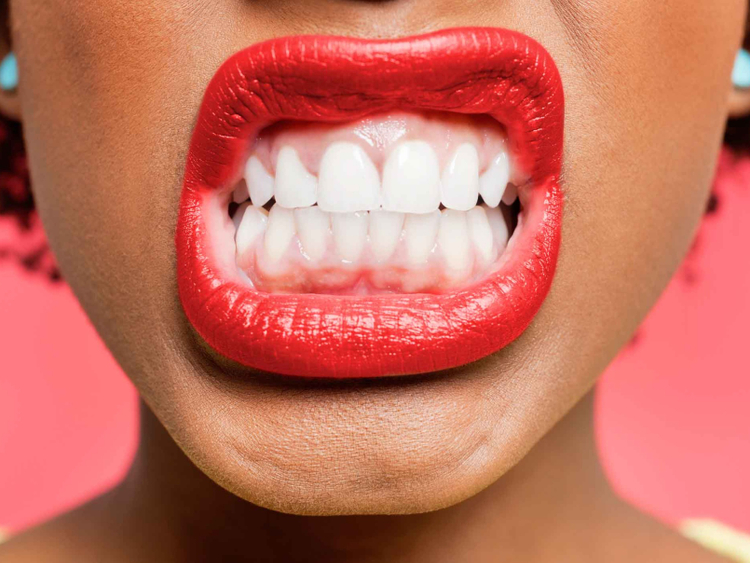Have you ever heard the expression ‘to grit your teeth’? Associated with stress and anger, gritting or grinding our teeth is something that we all do from time to time. However, if you’re grinding, gnashing or clenching your teeth at multiple times during the day or night, it’s probably time for a visit to the dentist – you may be suffering from Bruxism.
When teeth grinding occurs on a regular basis, it can have sever negative implications on your oral health. In some cases, Bruxism sufferers can grind their teeth down to stumps, and in others, grinding can result in the wearing down of enamel, increased sensitivity, as well as the loosening, fracturing and loss of teeth. It can also aggravate the joints in your lower jaw, leading to tightness and pain in the area. Hence, it is better to curb Bruxism as soon as possible to avoid incurring thousands of dirhams in bridges, crowns, dentures, implants and painful root canals.
How do I know if I grind my teeth?
The grinding of teeth can be linked to stress and anxiety; however, it is often caused by crooked teeth, an abnormal bite and conditions such as sleep apnea, and often occurs during sleep. While it often occurs in children, you can start grinding your teeth later in life.
This is mainly caused by unanticipated challenges and changes in your life, and may be unaware of it – but there are tell-tale signs.
Unexplained facial pain or tenderness in the jaw joint, as well as headaches and earache could mean that you suffer from Bruxism. If you suspect you’re grinding your teeth, talk to your dentist, who will examine your mouth for signs of jaw tenderness and excessive wear and tear on your teeth.
How do I treat Bruxism?
If you think you are grinding your teeth, it’s extremely important to talk to your dentist, even if you don’t suspect the problem to be severe. The good news is that, in most cases, Bruxism is easily treated and a common and very successful approach that we recommend for our patients at Drs. Nicolas and Asp is to use a night guard, which is typically worn during the night to help protect your teeth and gums from grinding. The guard itself fits over your teeth and reduces or completely eliminates the damage caused by grinding during sleep.
Other ways that you can treat Bruxism, in addition to wearing a night guard, is to ensure that you engage in relaxation activities such as mediation, yoga and listening to relaxing music. Moreover, be conscious of your grinding during the day, and try to relax your jaw with your mouth closed and your teeth apart.
If Bruxism isn’t treated, it can cause damage to the mouth and body over time, and has been known to negatively affect your ability to get a good night’s sleep.
- Dr. Charlotte Lloyd is a member of the British Dental Association who graduated from the Manchester University in 2012. She has special interests in Cosmetic and Preventive Dentistry and has worked in multiple private clinics in UK and Australia prior to joining Drs. Nicolas & Asp in August 2016.












